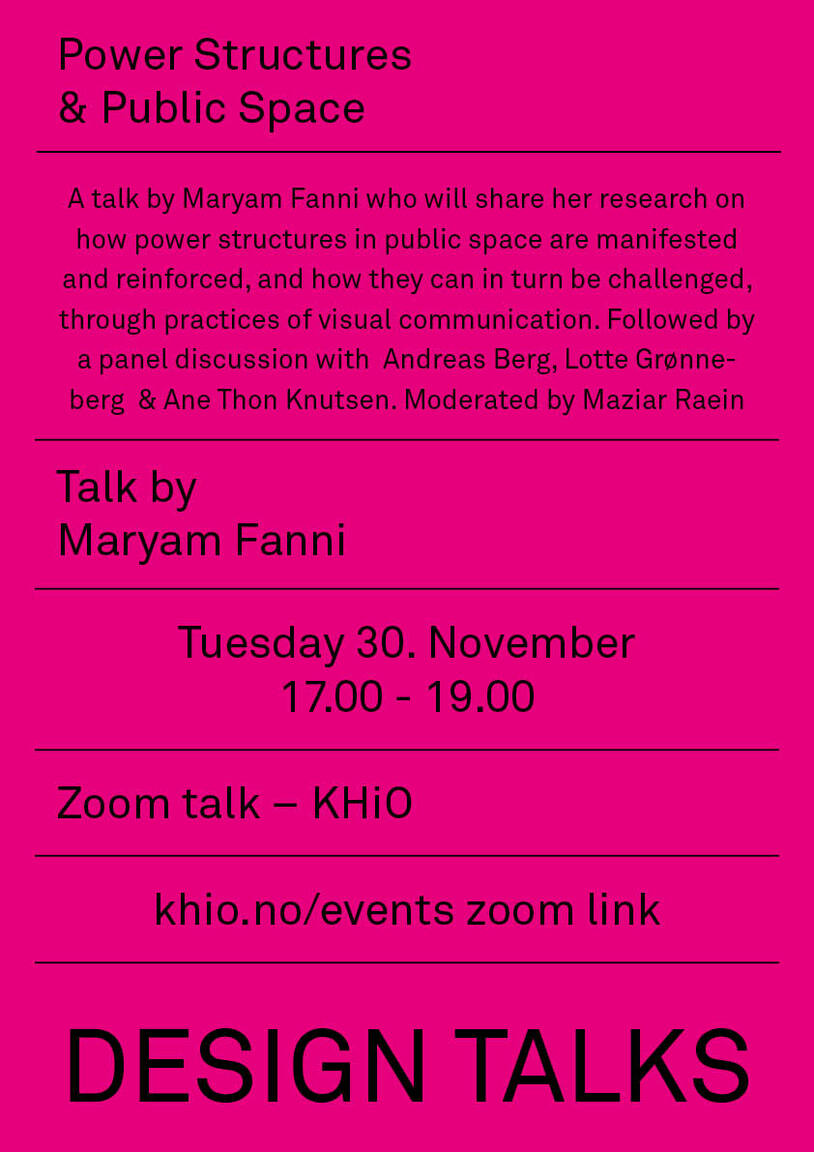Talk

Design Talks: Power Structures & Public Spaces
A talk by Maryam Fanni who will share her research on how power structures in public space are manifested and reinforced, and how they can in turn be challenged, through practices of visual communication.
Maryam Fanni is a graphic designer based in Stockholm and educated at Konstfack, Rhode Island School of Design and Royal Institute of Art in Stockholm. For almost ten years she has been running her own studio focusing on printed matter and book design, mainly for cultural and non-profit clients. She is currently a PhD student in Design at HDK-Valand, Gothenburg University. She is a co-editor of Vi ska totalt dominera – om utomhusreklam som demokratifråga( Dokument Press, 2021), Natural Enemies of Books – A Messy History of Women in Printing and Typography (Occasional Papers, 2020) and a member of the editorial board of Swedish journal of culture and political theory Fronesis.
This lecture will center around the question of how power structures in public space are manifested and reinforced, and how can they in turn be challenged, through practices of visual communication. In her practice, Fanni is interested in material conditions and the relation between visible–invisible in our shared spaces and history-writing.
The lecture will include examples of projects investigating ownership in relation to democracy in the urban built environment. A work-in-process part of her PhD project will also be shared, critically examining the principle of Before and After images often seen in urban renewal processes, arguing that such image couples are discursive and operational in themselves.